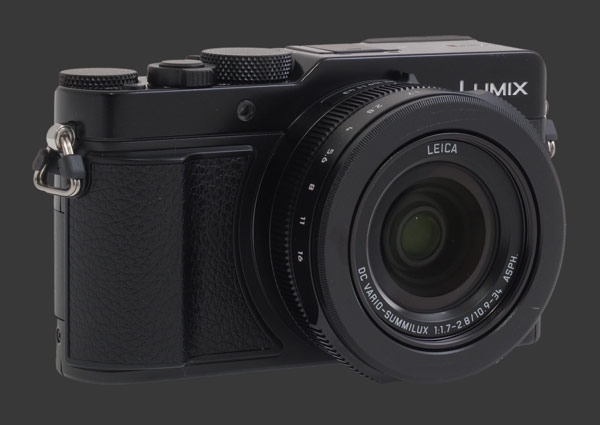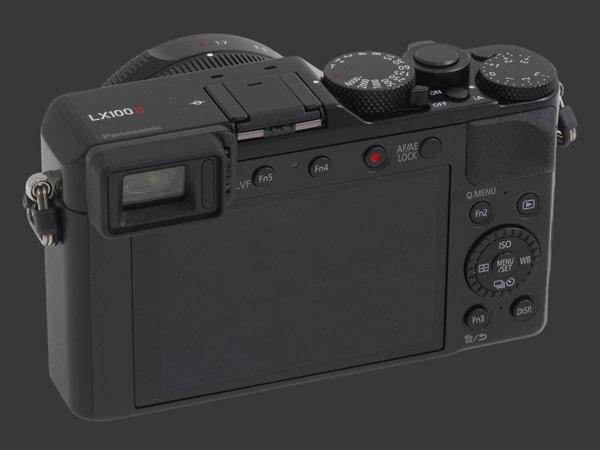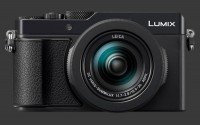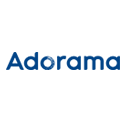Panasonic Lumix DC-LX100 II Review
Panasonic Lumix DC-LX100 II Introduction
The Panasonic Lumix DC-LX100 II is a Premium Compact Digital Camera that captures 17 megapixel images in multiple aspect-ratio while keeping its ultra-wide angle-of-view constant. It is built around a 20 MP Four-Thirds CMOS sensor paired with a stabilized ultra-bright lens giving an equivalent 24-75m F/1.7-2.8 using a reduced imaging-circle. Together the sensor and lens provided verstality only matched by its predecessor.
The LX100 II packs a powerful and fast processor that lets it capture full-resolution images at speedy 11 FPS and record 4K Ultra-HD video at 30 FPS. The 4K read-out provides a basic for plenty of specialized features, including Post-Shot Focus and Focus-Stacking. Exposure using ISO 200-25600, expandable to ISO 100, and shutter-speeds of 1/16000-60s are possible thanks to a hybrid shutter.
This premium digital camera provides an unusually high number of controls, including direct aperture and shutter-speed dials, plus a dedicated EC one and rear control-dial. It has an customizable control-ring, numerous switches and buttons. Framing is possible via a 2.8 megapixels 0.7X magnification EVF with Eye-Start sensor or a 3" LCD with 1.2 megapixels.
The LX100 II is extremely feature-rich and unlike any previous Panasonic digital camera. While it shares a core sensor with the Micro Four-Thirds mirrorless range, it is used in a completely different way.
This in-depth digital camera review covers the capabilities, usability, performance and unique aspects of the Panasonic Lumix DMC-LX100 II.

Panasonic Lumix DMC-LX100 II Features
Sensor
- 17 Megapixels Effective Resolution
- 2.2X Effective Crop-Factor
- 20 Megapixels Four-Thirds CMOS sensor
- Standard ISO 200 - 25600 sensitivity-range
- Expanded ISO 100 sensitivity
- Two Auto ISO modes
- 4:3, 3:2, 16:9 & 1:1 Aspect-Ratios
Exposure
- PASM Exposure Modes, plus Timed
- 1/4000 - 60s Mechanical Shutter-Speed range
- 1/16000 - 1s Electronic Shutter-Speed range
- Bulb Exposure, maximum 30 mins
- Exposure-Compensation, ±3 in 1/3 EV increments
- Multi-Segment, Center-Weighed and Spot metering modes
Lens
- Ultra-wide 24 - 75mm (3.1X) optical zoom
- F/1.7 - 2.8 Maximum aperture, F/16 Minimum
- 9-Blade Aperture, 1/3 EV increments
- Built-in Optical Image Stabilization
- 50cm Normal minimum focus distance
- 3cm (W) - 30m (T) Macro minimum focus distance
Image Parameters
- AutomaticTwo types: Standard and Cool, 5 presetsDaylight, Cloudy, Shade, Tungsten, Flash, Kelvin and Custom White-Balance, 4 memories
- WB Fine-Tuning, 19 steps along 2 axis
- White-Balance Bracketing, 3 frames, 9 increments, 2 axis
- Standard, Vivid, Natural, Scenic and Portrait color
- 3 Monochrome modes, 4 optional Color-Filters and 3 optional Grain Similation levels
- Adjustable Contrast, Sharpness, Saturation, Noise-Reduction, Shadow Curve and Highlight Curve, 11 steps each
- Dynamic-Range Adjustment, 3 levels
- JPEG, RAW or RAW+JPEG output
- Built-in RAW Conversion
- Optional Diffraction Compensation
- Optional Long-Shutter Noise-Reduction
Drive
- Single-Shot Drive-Mode
- Self-Timer: 2s, 10s or 3 shots @ 10s
- 11 FPS Mechanic-Shutter without preview
- 7 FPS Mechanic-Shutter with preview
- 6.5 FPS Mechanic-Shutter with AF-C
- 40 FPS @ 3 MP Electronic-Shutter without preview
- AEB, 7 frames, ±1/3 - 1 EV increments
- Aperture Bracketing, 3 or 5 frames
- Auto HDR, 3 frames, ±1 - 3, optional Auto-Align
- Aspect Ratio Virtual Bracket, always 4 frames
- Panorama, 2 coverage angles, 4 directions
- Time-Lapse, 1 - 9999 Frames, 1s - 99m59s, 0-23h59m Start-Delay
- Stop Motion Animation capture
- Multiple Exposure
Focus
- AF-S, AF-C, DMF and MF Focus-Modes
- Normal, Macro and Manual Focus-Range
- Pinpoint, Area, Custom, Automatic, Tracking and Face-Detect focus-point selection
- Focus Bracketing, 10 step sizes, 1-999 frames
- Optional Quick or Eye-Sensor prefocus
- Optional Manual Focus Assist
- Optional Focus Peaking
- Optional AF Assist-Lamp
- Optional Face-Recognition
Display & Viewfinder
- 3" LCD, 1.2 Megapixels
- 0.38" EVF, 2.8 Megapixels
- 100% Coverage, 0.7X Magnification
- Built-in Eye-Start Sensor
- Dual-Axis Digital-Level
- Adjustable EVF & LCD brightness, contrast, saturation, 13 steps each
- Adjustable EVF & LCD tint, 2 axis, 21 steps each
- Optional Zebra pattern
Video
- 3480x2160 @ 30 FPS 100Mbps MPEG-4
- 1920x1080 @ 60 FPS 28Mbps MPEG-4 or AVCHD
- 720p & VGA Video @ 30 FPS
- AF-S or AF-C focus
- Stereo Sound, 4 levels
- Optional Wind-Filter, 2 levels
- Time-Lapse Video
- Stop-Motion Video
Flash
- Auto, Auto Redeye, Forced, Redeye & Slow-Sync Flash-Mode
- Front or Rear Flash-Sync
- Standard Flash Hot-Shoe
- Accessory Flash, 14.1m (W) - 8.5m (T) range
- Optional Redeye Removal
Connectivity
- 4K Ultra-HD HDMI output
- USB 2.0 connectivity
- WiFi, 802.11b/g/n
- Bluetooth 4.2 LE
Misc
- Dedicated Aperture-Ring
- Dedicated Shutter-Speed Dial
- Dedicated Exposure-Compensation Dial
- Configurable AE/AF-L button
- Generic rear control-dial
- 5 Customizable buttons
- Lithium-Ion battery
- SDXC memory
- Metal tripod-mount
The Panasonic DC-LX100 II is virtually identical externally to the LX100. Much of this and the next review page is therefore taken from the predecessor, although Panasonic made quite a few changes to the digital interface and customization options.
Panasonic Lumix DC-LX100 II Capability - What can it do?
The Panasonic LX100 II is an extremely ambitious premium digital cameras. It embodies the archetype with a rich feature-set, numerous direct controls, a built-in viewfinder and an exceptionally large sensor. All that and it still manages to fit an ultra-bright ultra-wide-angle zoom lens in a moderately compact body.
This digital camera offers a complete set of manual-controls with a wide range of aperture, shutter-speeds and sensitivities. The electronic shutter can freeze fast action with a maximum 1/16000s shutter-speed, while the mechanical shutter can capture light trails for up to 30 minutes now, up from 2m with the original LX100. With a maximum ISO of 25600, the LX100 II can be used in extremely low-light.
The Leica DC Vario-Summilux lens on the LX100 II is exceptionally bright for one that covers a 2.2X crop-factor. At wide-angle, the maximum aperture is F/1.7 which narrows to F/2.8 at telephoto, which is still relatively bright. This makes it possible to isolate subjects from their backgrounds. At all focal-lengths, the maximum F/16 aperture maximizes depth-of-field, allowing expansive scenes to be captured without much softening due to diffraction.
The real distinction of the Panasonic Lumix DC-LX100 II is that it is equipped with a larger-than-necessary sensor. This has crucial implications unique among premium digital cameras othen than the LX100. While the camera features a 20 megapixels Four-Thirds sensor, which itself has a 2X crop-factor by definition, the lens covers an imaging-circle with 2.2X crop-factor. Thus, the output resolution of the LX100 II is around 17 megapixels, depending on the chosen aspect-ratio. Ordinarily, much more would be lost to cropping.
More importantly than preserving resolution, what this digital camera does is maintain a nearly constant maximum diagonal angle-of-view. At 4:3, 3:2 and 16:9, the Leica 10.9-34mm lens on the LX100 II is equivalent to an ultra-wide 24-75mm lens on a full-frame camera. At 1:1, this gets reduced to a wide 28-88mm-equivalent field-of-view. Along the long edge though, the angle-of-view of wide-formats gets larger, allowing to capture wider scenes than is usually possible. This is really nice for sweeping landscapes and imposing architecture.

The maximum reach of the LX100 II lens makes it usable for portrait yet is too short for typical street and sport photography. Wildlife is out of the question too. Anything longer would make this digital camera significantly more bulky, particularly with such a bright aperture. The LX100 II clearly provides a reasonable compromise by covering ultra-wide to normal focal-length in a compact large-sensor camera.
With an effective resolution around 17 megapixels, the Panasonic LX100 II can produce reasonably large prints. Considering this is a Four-Thirds sensor, one can readily expect high image-quality. The performance page of this review describes it in depth.
The high-speed CMOS sensor has a fast read-out rate which lets it shoot extremely quickly. It can capture full-resolution images at 11 FPS. In order to maintain a live preview, it must slow down to a respectable 7 FPS with AF-S or 6.5 FPS with AF-C. This output is also used to capture video up to 4K Ultra-HD resolutions at 30 FPS or 1080p HD at 60 FPS.
One key aspect of premium digital cameras is their compact size to serve as versatile photography tools when an interchangeable lens camera would be too bulky. The LX100 II is Medium size which is slightly larger than typical compact cameras yet smaller than most bridge cameras. While this is not pocket-size, the Panasonic LX100 II is certainly easy to carry. At under 400g, remains quite light too.
The LX100 II is equipped with an impressive feature-set. It offers built-in HDR, Time-Lapse Video, Stop-Motion Video, Multiple-Exposure and multiple types of bracketing. AEB takes up to 7 frames with 1 EV step increments, while WB Bracketing captures 3 frames along one of two axis with 9 possible step sizes. A unique Aspect-Ratio Virtual Bracket feature takes one shots and extracts all 4 possible aspect-ratios from it. Guidelines are provided to help with such complex framing.
The Micro-HDMI port on this Panasonic can output at 4K Ultra-HD resolution. This camera also offers built-in WiFi connectivity and adds Bluetooth 4.2 LE to keep power consumption relatively low. It can be controlled remotely, transfer images as they are captured or send previously captured ones. A Smartphone with GPS can also be used to geo-tag images. Finally, the Panasonic Android app makes it possible to use the LX100 II as home-monitoring camera.
 |
Please Support Neocamera
All information on Neocamera is provided free of charge yet running this website is a huge endeavor. Purchases made via affiliate links found throughout the site help keep it running and up-to-date. There is no additional cost to you, so please consider buying via these links to our affilates:
If you found any information on this site valuable and did not purchase via our affiliate links, please considering donating via PayPal:
Any amount will be greatly appreaciated. Thank you for your support!
Panasonic DC-LX100 II Highlights

Sensor-Size: 17 x 13mm

Actual size when viewed at 100 DPI
| 17 Megapixels Fixed Lens | ISO 100-25600 |
| 3.1X Ultra-Wide Optical Zoom | Shutter 1/16000-60s |
| Built-in Stabilization | Full manual controls, including Manual Focus |
| 0.38" Built-in EVF 2.8 Megapixels (0.70X) | Custom white-balance with 2 axis fine-tuning |
| Automatic Eye-Start sensor | Spot-Metering |
| 2 Axis Digital Level | Hot-Shoe |
| 11 FPS Drive, 33 Images | Lithium-Ion Battery |
| 3840x2160 @ 30 FPS Video Recording | Secure Digital Extended Capacity |
| 3" LCD 1.2 Megapixels |
Updates
2025.01.18

Fujifilm GFX 2025 Lens Roundup
Lens Review roundup of Fujifilm GFX Medium-Format lenses. Quality, performance and handling of the GF20-35mm F/4R WR, GF30mm F/3.5 Tilt-Shift and the GF55mm F/1.7.
2024.11.18

Best 2024 Photography Gifts for Every Budget
Great gifts for photographers and photo enthusiasts selected for every budget among the best products of 2024.
2024.08.07

Eye Protection Tips for Professional Photographers
The four main considerations for professional photographers regarding eyewear.
2024.07.14

Fujifilm X100VI Review
Flagship fixed-lens compact digital camera with a 40 MP sensor and Image-Stabilization, a first for the series. Retro design featuring dual control-dials, plus direct ISO, Shutter-Speed and EC dials. Its hybrid viewfinder can switch between EVF and OVF mode.
2024.05.09

Fujifilm GFX100 II Review
Flagship 102 Megapixels Medium-Format Mirrorless Digital Camera with 8-Stop 5-Axis IBIS, 8 FPS Drive, 8K Video and 400 MP Super-Resolution capture in a weatherproof and freezeproof body with dual control-dials and dual memory-card slots.
2024.04.03

Fujifilm X-T5 Review
Newest Fujifilm flagship boasting a 40 MP APS-C sensor, 5-axis IBIS with 7-stop efficiency, 15 FPS continuous drive, 6.2K Video capture, dual control-dials and dual SDXC UHS-II slots in a sturdy weatherproof and freezeproof body.
2023.11.20

Best Digital Cameras of 2023
Find out which are the Best Digital Cameras of 2023. All the new Mirrorless Digital Cameras from entry-level to high-end professional.
2023.07.10

Fujifilm X-H2 Review
40 Megapixels APS-C Hybrid Mirrorless Digital Camera with 7-stop IBIS. Fastest shutter ever and 8K video capture. Large builtin EVF with 0.8X magnification and 5.8 MP, plus an Eye-Start Sensor. Packed with features and large number of controls in a weatherproof and freezeproof body.
2023.05.07

Sony FE 20-70mm F/4G Review
Review of the unique Sony FE 20-70mm F/4G lens. The optical zoom of this lens spans ultra-wide-angle and medium focal-length coverage, making it one of the most versatile Full-Frame lenses on the market.
2023.01.15

Huion Inspiroy Dial 2 Review
Review of the Huion Inspiroy Dial 2 tablet, a medium sized drawing surface with dual dials and customizable buttons. Connects via USB-C or Bluetooth 5.0 with Windows, Linux and Android support.
2022.12.08

How to Pack for a Photo Trip
Find out how to pack for a travel photography trip, carry your gear safely while meeting airline regulations.
2022.11.13

Best Digital Cameras of 2022
The best digital cameras of 2022. A short list of the most outstanding models in their respective categories. Choose one for yourself or as a gift.












